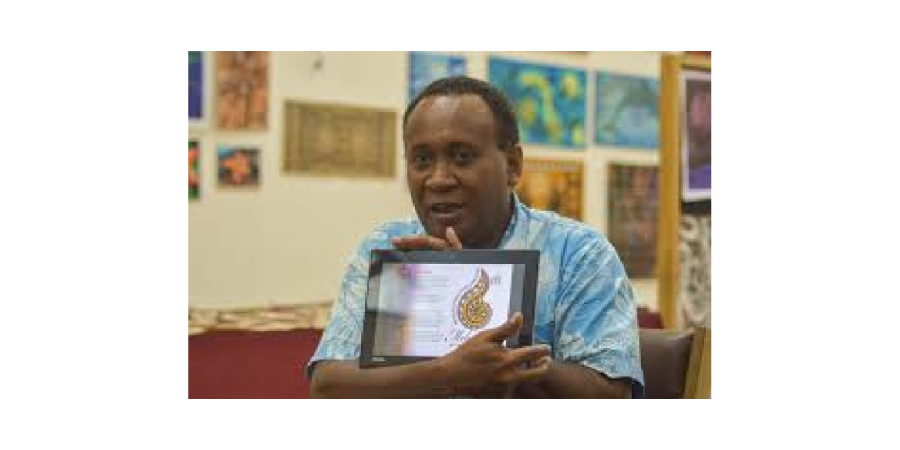The Solomon Islands must establish a Collective Management Organization (CMO) to oversee the copyrights of musicians and artists. This need arises despite the existence of the Copyright Act 1987, which has not been effectively utilized by artists to safeguard their works from unauthorized use.
Fijian intellectual property lawyer Pita Niubalavu emphasized in a press conference last Wednesday that artists must take proactive steps to license their work with known users.
“Solomon Islands requires significant awareness to ensure that the copyright law is properly understood and applied,” Mr. Niubalavu stated. “The law has been in place since 1987, yet there have been no recorded copyright infringement cases in the country’s courts, particularly in the music industry.”
He highlighted that while there is a provision for copyright registration, no musical works have been registered with the registrar’s office to date.
Mr. Niubalavu was a guest speaker at a six-day workshop in Honiara on ‘Copyright in Music and UNESCO 2005 Convention,’ co-hosted by the Ministry of Culture and Tourism and the UNESCO office in Apia, Samoa. The workshop forms part of the SDG Joint Programme under UNESCO, aiming to advance Sustainable Development Goals (SDGs) by improving livelihoods, social protection, human rights, and economic resilience through digital transformation and industry diversification.
“There are many misunderstandings regarding copyright law. One of the workshop’s benefits is clearing these misconceptions by reinforcing that copyright law exists, includes penalties for infringement, and provides empowerment for artists,” he added.
Mr. Niubalavu also noted the critical role of law enforcement, stating, “Police officers must be aware of their obligations and legal powers to charge individuals who infringe on artists’ copyrights. A significant issue is that music has been used freely for years without benefits to the artists.”
Musician Alfred Saba, of the band 3 Kings, has personally benefited from copyright protections by joining SACD, a CMO based in France.
“For 15 years, I have received royalties through my copyright agreement. The missing link in our industry is a middleman to represent artists,” Mr. Saba said. He urged artists to organize and push for a CMO, which could also help address unemployment.
Director of Culture Dennis Marita stated that progress has been made over the past five to six years.
“A Solomon Islands Intellectual Property Strategy was launched and approved by the Cabinet in 2018, and its implementation is ongoing,” he noted. “We have also become a member of the World Intellectual Property Organization (WIPO) since 2018.”
A key next step is establishing an Intellectual Property (IP) Office, which now exists under the Ministry of Justice and Legal Affairs.
Mr. Marita emphasized that further policy development is needed to review and strengthen intellectual property legislation.
“Nationwide awareness is a priority, and this workshop is just the beginning. We plan to hold further discussions with artists and extend awareness campaigns to the provinces,” he said.
Additionally, a draft bill titled the Traditional Knowledge and Expressions of Culture Bill is currently under review by the Attorney General’s Chamber.
Mr. Marita stressed that globally, intellectual property is a multi-million-dollar industry, generating revenue through copyright protections.
“This country has long missed out on the economic benefits of intellectual property rights. With the proper legal framework and institutional support, we can unlock significant potential, particularly in the arts sector, given our rich cultural resources and artistic talent,” he said.
He further emphasized that achieving these goals will require collaboration among various stakeholders, including the Office of the Registrar General, the Public Solicitor’s Office, and law enforcement agencies.
“This is a long-term effort. We have been working on this for over a decade, and now we are at a critical stage,” Mr. Marita concluded.
A Collective Management Organization (CMO) licenses copyright and related rights on behalf of rights holders, also known as collecting societies. These organizations represent authors (writers, composers, painters, photographers), performers (musicians, actors, dancers), publishers, phonogram producers, and film producers.
CMOs ensure rights holders receive fair compensation by monitoring the use of their works, negotiating licenses, documenting rights data, collecting royalties, and distributing payments among members. Establishing a CMO in the Solomon Islands would provide a structured system to protect artists and enable them to earn revenue from their creative work.
By EDDIE OSIFELO
Solomon Star, Honiara









